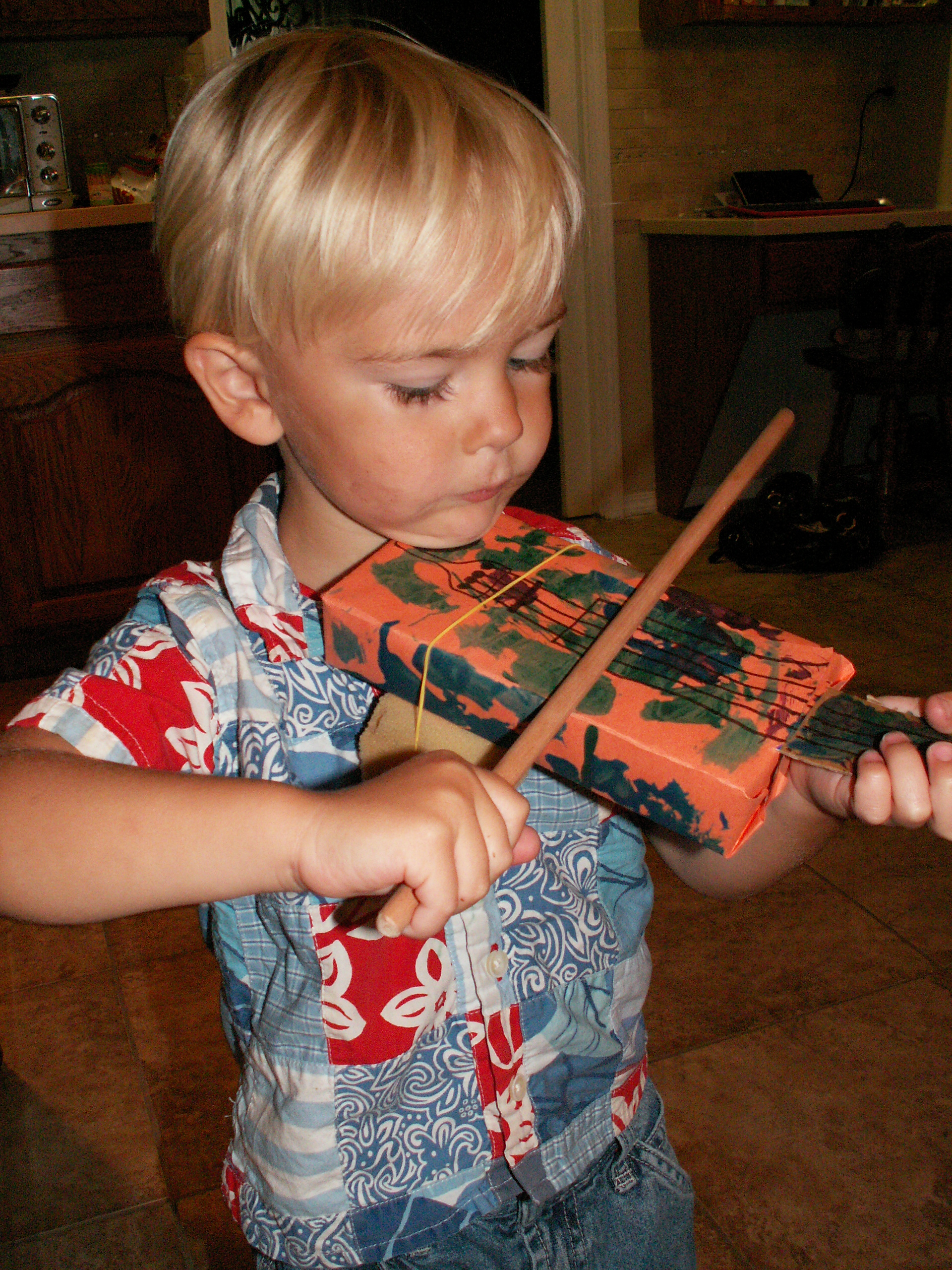
In Suzuki violin, young kids spend several weeks, even months, strengthening their fine motor skills and playing muscles by holding a violin-shaped cardboard box and a wooden dowel rod in place of a bow.
In our age of instant gratification, this technique might sound ludicrous, or, as one woman told me, like child abuse. But those who think that way are missing the point.
Two things happen to a young child who holds a cardboard violin for months. First, when that real wooden violin gets placed in his hand, he knows he's earned it. It's an incredible honor. Second, the first time the child runs that bow across the violin, he does it with impeccable technique.
What does this have to do with parenting? Parenting young children is much like holding a cardboard violin for months and months, even years. It can be tedious, frustrating and exhausting. The ratio of work to reward is completely skewed. The music is more of a screech than a symphony.
Then, as if overnight, you get handed a gift. It's a real little person who can talk in full sentences, someone you can reason with and read to, a magnificent spirit in a small body with a mind and heart and gobs of personality.
When a young child holds that first cardboard violin, he's working on many things: the placement of his feet, the weight distribution and the position of his head. A violin is not held up by the left hand, but by the weight of the jaw set atop the chinrest. Therefore, a child must learn endurance. All of this, coupled with just the right balance of fingers and positioning on the bow, are called the setup.
If done right, the setup is the beginning of beautiful music making.
The same goes for families. Those young years, which can be so difficult and exhausting, are so important for setting up family culture and good habits. The real challenge of parenting is to not let the day-to-day minutia obscure the long-term vision. But if you do the right things first, often the hard things, the music does come.
What are the hard things? For one, setting limits and boundaries. It's OK to tell a child no. If there is one thing I wish someone had told me as a brand-new parent, it is this: Be in charge. Don't stop being in charge, even when your children are tweens and teens. They may not always show it, but kids need and appreciate boundaries.
What are the other hard things?
• Teaching is hard. It's much easier to set kids in front of a screen than it is to engage them in creative play. It is easier to outsource learning to preschools and elementary schools than to lay that groundwork at home. It's easier to hand your kid an iPad than a book. But a parent is the child's first teacher and the most important influence in setting a child up for success.
• Teach them to work. No kid is going to jump at the chance to unload the dishwasher, but kids who know how to work are going to grow into adults who have learned to value hard work. Kids who help scrub bathrooms and vacuum the stairs come to understand that they are part of a family unit much bigger than themselves. Plus, they're going to head off into the wide world armed with basic skills that many young adults lack, skills such as laundry, cooking and household chores.
• Teach kids delayed gratification. Allow kids the pleasure of earning something they really want, even if it takes months or years. Teach them to budget, save and pay a tithe. Teach them the real cost of things such as food, household expenses and clothing. Don't give them everything they want or ask for.
• Take thought in establishing a family culture. This is easiest to do while the children are young, but it's never too late. Some families raise their kids on the ball field. Others build character through manual labor, hunting and fishing, or practicing a musical instrument. Some do all of the above. Religious practice is also a key element in establishing a family culture.
A lot of that culture shows through in how a family spends its time: Do you play games together, attend museums, watch football, go camping, read books aloud, take nature walks or have musical jam sessions? Do you read family scriptures, pray and attend church? Most of us have intentions when it comes to what we envision for our family, but we may not be taking the necessary steps to create that culture.
A strong family culture that creates and perpetuates healthy traditions will help to strengthen your kids now and ground them as adults.
My kids are no longer babies and toddlers. Every day I watch with wonder as they grow into enormous men with feet the size of small boats and appetites to rival Paul Bunyan's. Every day I am amazed by this fabulous and frustrating journey called parenting.
And every day I see moms of young children, pushing strollers and wiping noses, and I want to put my arm around them and say, "You've got this. These years will go faster than you ever imagined. But right now, right now, you are doing the good stuff."
"Hang in there and do the hard work now," I want to say. "The music is just around the corner. Can you hear it?"


 Contact The Editor
Contact The Editor
 Articles By This Author
Articles By This Author